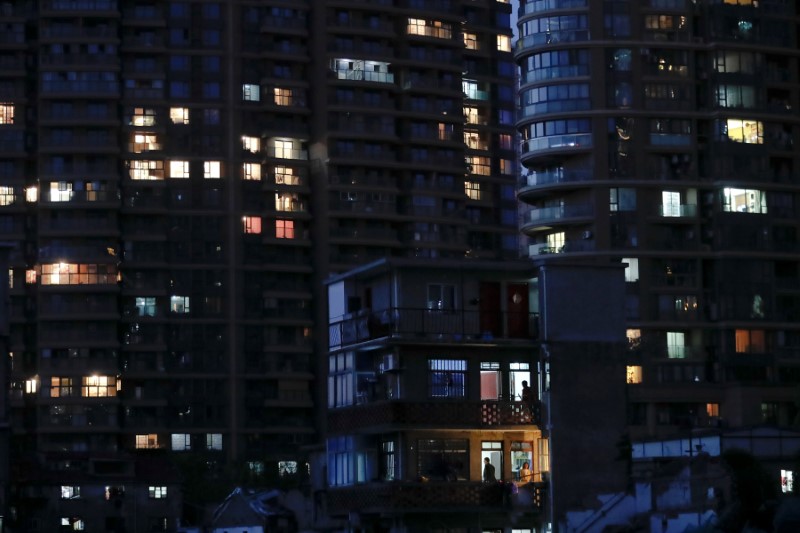By Yawen Chen and John Ruwitch
SHANGHAI/BEIJING (Reuters) – Two of China’s major cities have imposed new borrowing restrictions intended to cool their red-hot property markets, as authorities fret price growth will again rebound after showing only modest signs of abating. Shanghai, China’s financial hub, has raised the minimum required downpayment and tightened eligibility criteria for buyers of first homes, state media reported on Tuesday.
On Monday, Tianjin also announced stricter tightening measures to rein in a soaring property market, hiking the downpayment ratio for buyers of both first and second homes.
Starting on Tuesday, buyers of first homes in Shanghai would have to make a minimum downpayment of 35 percent from 30 percent, while in Tianjin the downpayment was raised to 30 percent from 20 percent for first-home buyers borrowing from banks. “I’m not very surprised at new moves at the local level. The upward price pressure is still very high in China’s biggest cities as inventories are low and demand remains strong,” said Rosealea Yao, analyst of Gavekal Dragonomics based in Beijing. Yao said inventories in most of the country were still falling, so about 60 percent of cities could see further price rises.
Home and residential land prices have soared in many parts of China this year, prompting authorities to impose a range of restrictions on buyers and curbs on developers’ ability to raise funds. Shanghai and Tianjin were among a number of China’s first- and second-tier cities that adopted extensive tightening measures during the first week of October, with their booming property markets soon showing early signs of a softening. “It’s very likely the price growth can’t be contained once and for all with the policies implemented in October. There are short-term risks of a rebound in November and December,” said Gavekal Dragonomics’s Yao. The Shanghai Daily said the government also tightened the definition of first-time home buyers to exclude anyone who has owned a home in the city or applied for a mortgage from commercial banks or the government’s Housing Provident Fund (HPF), even if they no longer own a home. Meanwhile, the Shanghai HPF management committee said it will raise interest rates by 10 percent for home buyers borrowing from the HPF for a second time, with the maximum loan amount lowered by 100,000 yuan ($14,510.00). People who have two mortgages would be banned from accessing HPF loans, it said. “During 2010 and 2014, similar policies were also implemented in Shanghai, which were proved effective in controlling property price gains,” Zhou Hao, an emerging market economist for Asia at Commerzbank AG, wrote in a morning note. Moody’s Investors Service said on Monday that the outlook for China’s residential property market in 2017 was stable, noting restrictions were less severe than those seen in previous boom cycles in 2011 and 2014, and monetary conditions remain broadly supportive for the property sector. Moody’s forecast a 5 to 10 percent decline in sales volume in 2017, and projected home prices would rise modestly in 2017 from an already high base.
“The market will definitely cool next year, and I think the government is happy to see that as long as it’s incremental and controllable. To have a 10 percent drop in sales is quite acceptable,” said Yao. (Reporting by John Ruwitch, Ryan Woo and Yawen Chen; Editing by Eric Meijer)
Shanghai, Tianjin beef up debt curbs to cool red-hot housing market

By Yawen Chen and John Ruwitch
















